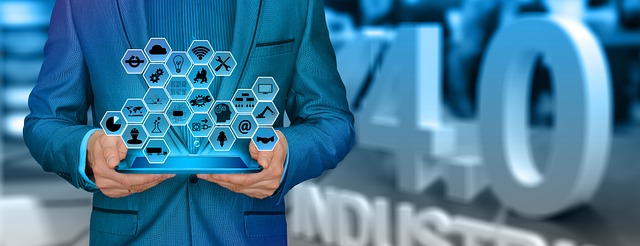# The Impact of AI Technology on Workforce Dynamics and the Future of Employment Opportunities
Artificial Intelligence (AI) is revolutionizing various sectors, reshaping not only how businesses operate but also how employees interact with technology. As AI systems become increasingly sophisticated, their integration into the workplace is altering workforce dynamics and redefining employment opportunities. This article delves into the multifaceted impact of AI technology on the labor market, examining both the challenges and the prospects it presents for the future.
## The Transformation of Job Roles
In recent years, the advent of AI has led to significant changes in job roles across multiple industries. Traditional positions are evolving, with AI taking over routine and repetitive tasks. For instance, customer service roles are increasingly supplemented by chatbots and virtual assistants, which can handle inquiries more efficiently than human employees. This shift allows human workers to focus on more complex problem-solving and interpersonal interactions, enhancing overall productivity.
Moreover, the integration of AI is not merely about replacement; it is also about augmentation. Workers are now equipped with AI-driven tools that enhance their capabilities. In fields such as healthcare, AI assists doctors in diagnosing diseases more accurately, while in manufacturing, predictive maintenance powered by AI algorithms minimizes downtime. As a result, employees are compelled to adapt and acquire new skills that complement AI technologies, thereby transforming the nature of their work.
Furthermore, the emergence of AI has given rise to entirely new job categories. Roles such as AI ethics compliance officers, data scientists, and machine learning engineers are now in high demand. These positions require specialized knowledge and skills, underscoring the need for continuous learning and professional development in the workforce. Workers who embrace this change and seek to upskill will find themselves better positioned in an increasingly competitive job market.
## The Challenges of Workforce Displacement
While AI presents numerous opportunities, it also poses significant challenges, particularly regarding workforce displacement. Automation threatens to eliminate certain jobs, particularly those that involve repetitive tasks. According to various studies, millions of jobs could be at risk of automation in the coming decades. Sectors such as manufacturing, retail, and transportation are particularly vulnerable, as AI technologies can perform tasks more efficiently and at a lower cost than human workers.
The implications of job displacement extend beyond individual workers; entire communities may face economic upheaval as traditional industries decline. This phenomenon raises critical questions about the future of work and the social safety nets necessary to support displaced workers. Governments and organizations must consider strategies to mitigate the adverse effects of AI-driven job loss, such as investing in retraining programs and supporting industries that are less susceptible to automation.
In addition, there exists a growing concern about the skills gap in the workforce. As AI technologies evolve, the demand for workers with technical skills has surged. However, many current job seekers may lack the necessary qualifications to meet these new requirements. This mismatch between available jobs and the skill sets of the workforce can exacerbate unemployment rates and lead to economic inequality. Addressing this skills gap will require collaboration between educational institutions, businesses, and policymakers to create training programs that equip workers with the skills needed for the future.
## The Future of Employment Opportunities
Looking ahead, the future of employment opportunities in an AI-driven landscape is likely to be characterized by both innovation and adaptability. Industries that embrace AI are poised for growth, creating new roles and enhancing existing ones. For example, in the technology sector, companies are investing heavily in AI research and development, leading to an influx of jobs in software engineering, data analysis, and AI ethics.
Moreover, the rise of remote work, accelerated by the COVID-19 pandemic, has been further enhanced by AI technologies. Employers are leveraging AI tools to manage remote teams, optimize workflows, and improve communication. This trend is likely to persist, offering workers greater flexibility and access to job opportunities that were previously limited by geographic constraints.
Additionally, the focus on ethical AI practices is expected to create new roles dedicated to ensuring that AI systems are developed and deployed responsibly. As organizations recognize the importance of transparency and fairness in AI, professionals who specialize in AI ethics, compliance, and governance will become increasingly valuable. This shift underscores the need for a workforce that is not only technically skilled but also ethically aware.
In conclusion, AI technology is profoundly impacting workforce dynamics and the future of employment opportunities. While it presents challenges, particularly in terms of job displacement and the skills gap, it also offers significant potential for innovation and growth. As industries adapt to the changing landscape, workers who prioritize continuous learning and adaptability will be best positioned to thrive in the new world of work. Embracing the opportunities that AI presents, while addressing its challenges, will be essential for fostering a resilient and equitable workforce in the years to come.

